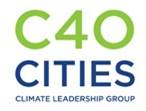Through an agreement signed during the C40 Cities Mayors Summit in São Paulo, Brazil, the partnership, the C40 and the World Bank will establish: a consistent approach to climate action plans and strategies in large cities; and a common approach to measuring and reporting of city greenhouse gas (GHG) emissions to allow verifiable and consistent monitoring of emissions reductions, identify actions that result in the greatest emission reductions, and facilitate access to carbon finance.
 1 June 2011: The World Bank and the C40 Cities Climate Leadership Group (C40), a group of large cities committed to addressing climate change, have partnered to accelerate current action by cities aimed at reducing greenhouse gas (GHG) emissions and improving their resilience to climate change.
1 June 2011: The World Bank and the C40 Cities Climate Leadership Group (C40), a group of large cities committed to addressing climate change, have partnered to accelerate current action by cities aimed at reducing greenhouse gas (GHG) emissions and improving their resilience to climate change.
New York City Mayor Michael R. Bloomberg and World Bank Group President Robert B. Zoellick signed the agreement during the C40 Cities Mayors Summit in São Paulo, Brazil. The World Bank’s support will focus on enabling megacities to expand mitigation and adaptation actions while strengthening and protecting economies, reducing poverty and protecting vulnerable populations. In addressing the meeting, Zoellick underlined that “80% of the estimated $70 to 100 billion it will cost each year through 2050 to adapt to the changing climate are in sectors closely related to cities, including water supply, coastal zones, and infrastructure.” He highlighted the power of the world’s largest cities as a “force for change” to promote energy efficiency, clean energy programmes, climate change adaptation, and mitigation strategies.
The partnership addresses structural issues that make it difficult for cities to finance climate actions that have been identified by both C40 Cities and the World Bank Group. As part of the mutual agreement, the C40 and the World Bank will establish: a consistent approach to climate action plans and strategies in large cities; and a common approach to measuring and reporting of city greenhouse gas (GHG) emissions to allow verifiable and consistent monitoring of emissions reductions, identify actions that result in the greatest emission reductions, and facilitate access to carbon finance.
The World Bank will also establish a single, dedicated entry point for C40 cities to access World Bank climate change-related capacity building and technical assistance programs, and climate finance initiatives; and it will support cities finding adequate financial alternatives to implement their strategies. [World Bank Press Release] [Robert Zoellick’s Opening Remarks] [C40 Summit Website]